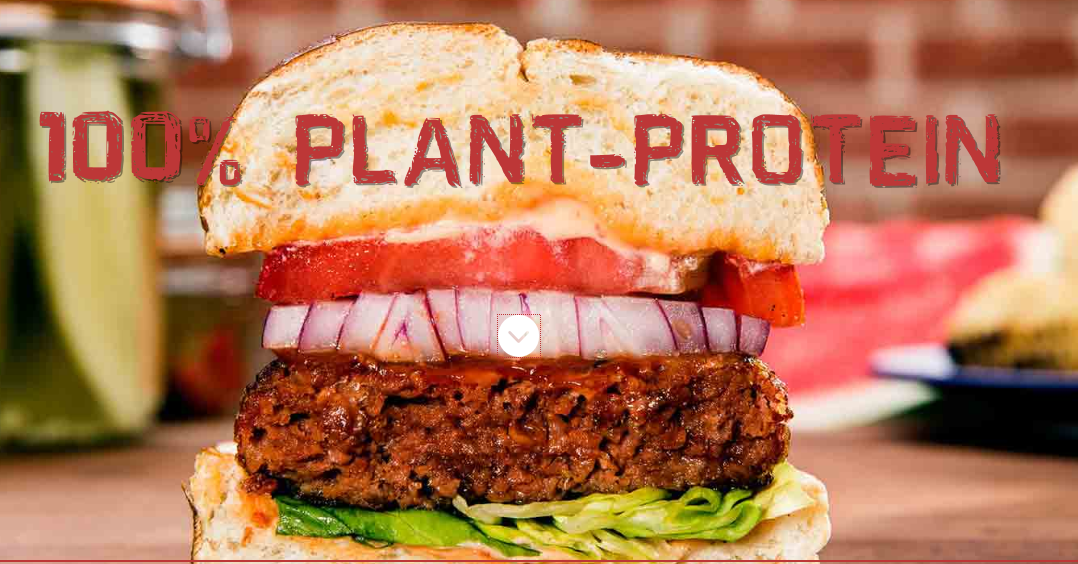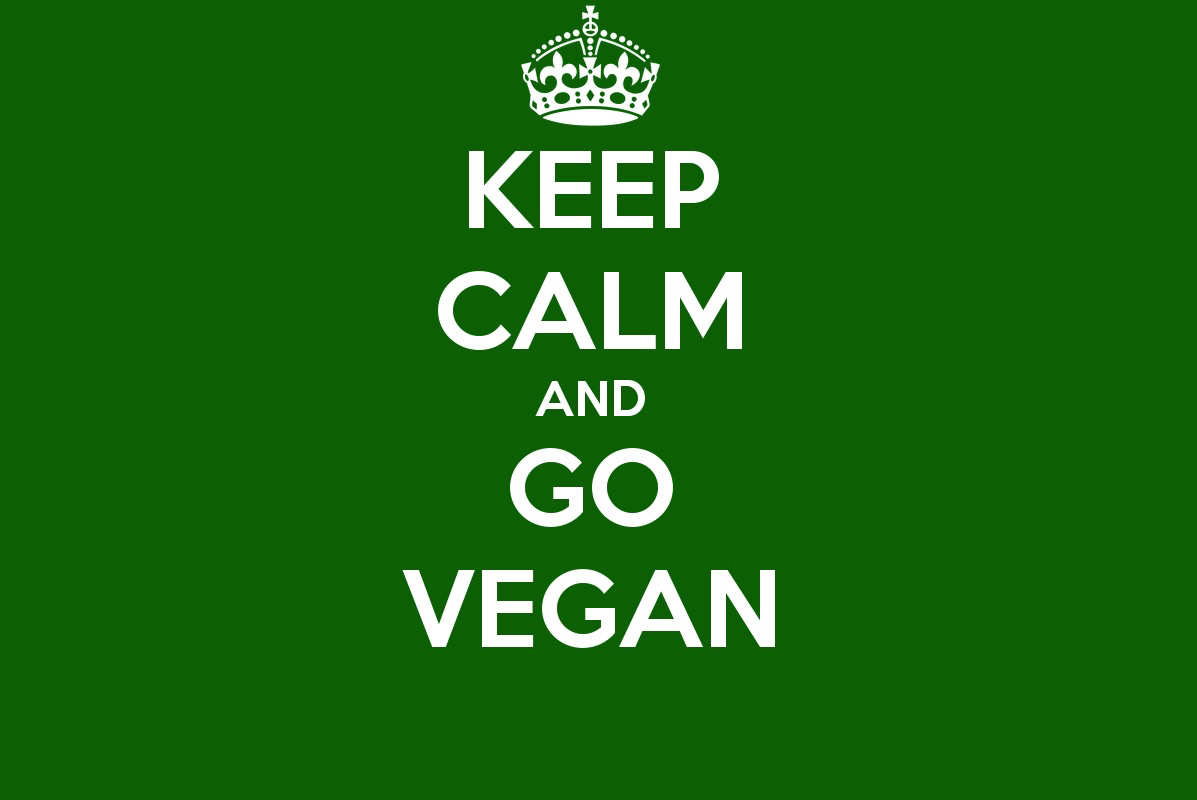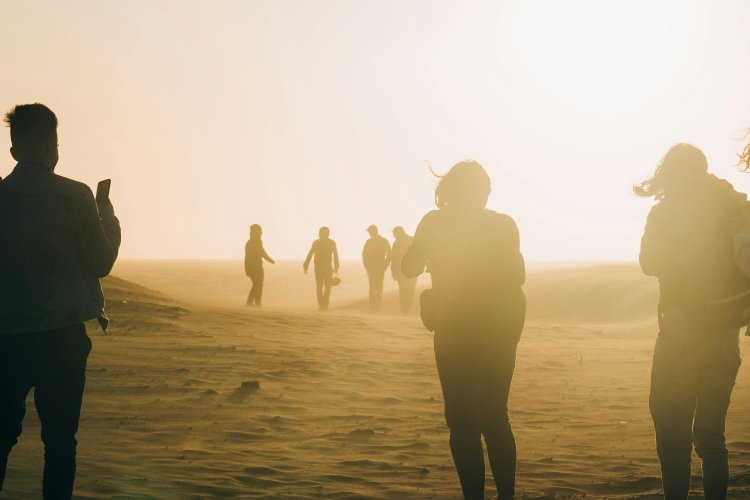Bei-cology: Chow Down to Help the Planet With World Vegan Week
Mike Shaw hopes to make helping the planet a delicious proposition. As one of the coordinators of the World Vegan Week events in Beijing, he sees the socially conscious diet as not beneficial to his personal health, but also that of the entire world’s.
“If it takes X amount of land to raise a cow, plus Y amount of land to grow the feed needed to sustain it, then you can easily calculate how much arable land you’d need to supply every person on Earth with just a minimal amount of meat in their diet. There is nowhere near enough planet for that to work. By a factor of at least three. It’s just a physical reality,” Shaw says ahead of Vegan Week, which includes special events like an October 30 potluck at Veg Planet, a November 1 vegan outreach dinner at 4Corners, a November 2 “SMILE-CHANGE-UNPLUG” event at Caravan, a November 4 vegan cocktail dinner at Juice by Melissa, and vegan options at November 5’s Chi Fan for Charity (click here for more info).
Caravan manager Badr Benjelloun says that he is more than happy to partake in the World Vegan Week event series, and says his restaurant has long been amongst the local eateries that provide leaf based menu items. “I’m a full carnivore, but I can go without meat for awhile if I need to. I respect people who are vegan, and try to give them a place where they don’t feel judged,” he says of empathizing with those who strive for such strict diets.
Benjelloun counts Shaw amongst his best friends and longtime customers, and says vegans like him inspired Caravan’s meatless jambalaya and other vegan dishes, all of which are clearly labeled on the menu. On top of that, Caravan’s World Vegan Week event will be part of the restaurant’s regular “unplugged” no-phone promotion, another environmentally friendly facet of the evening.
Below, Shaw tells us more about why he’s excited for all the venues to take part in World Vegan Week, how the events can help keep vegan motivated, and how all that chowing down can help boost ecology.
Tell us more about how living a vegan lifestyle is a good way to help the world's ecology.
There are two ways that I think about this: Math and business efficiency. I already talked about the math aspect in terms of cattle and land. Then there’s the simple fact that animal agriculture is, by far, the number one emitter of carbon and other greenhouse gasses. It beats all of the cars, planes, and ships hands-down. There’s tons of data on this, and I’d highly recommend checking out the film and Cowspiracy website. It’s a wonderful, revelatory primer on the environmental crisis that we’re all contributing to with every beef burger that we eat.
Next, there’s maddening inefficiency. Right now we use animals to convert grass and grains into protein strands that we like the taste and texture of. Over the last several years we’ve developed the technology to do the same thing without them, by using industrial labs and ovens. Putting aside the amazing things that can be done with veggies (The Local’s vegan buffalo wings are better than the regular ones), I challenge anyone, the next time that they’re in Hong Kong or the US, to try Beyond Meat’s Beast Burger and tell me that they couldn’t make the switch to plant-based meats and be totally satisfied. The way that we’re producing the majority of our protein strands and lactose is so wasteful and unnecessary that it’s beyond absurd.

Once you get your head around the craziness of our current food production and delivery systems, you realize that it’s just plain illogical to consume animal-based products. But the great news is that when you switch to plant-based eating, you take an active role in helping to solve the problem with every single bite. It’s incredibly empowering!
How did you become vegan?
My move to plant-based eating was a long journey. Two and a half years ago I met a woman from New Zealand who had just moved to Beijing. She’s a consultant for the dairy industry, and she told me that after the very first day on a farm in China she was so horrified by the conditions that the cows were living in, and the way that the “products” were handled, that she decided immediately to never eat any meat or dairy products while in-country. For some reason all of the food safety scares that we’d had up until then never impacted me the way that her story did; it made me think about what I was eating and the kind of impact that I was having.
Just a couple of weeks later, one of my friends from Russia began participating in the Orthodox tradition of fasting during Lent. She gave up eating meat, dairy, sweets, and drinking alcohol. Because she is Russian and I’m an American Cold War kid we enjoy a friendly rivalry sometimes. She challenged me to do the fast with her and I accepted. After the first week I was surprised to find how easy it was to not eat meat! As I came to the end of the challenge I was about to take a trip back to the US, and I decided that after I returned I would go vegetarian.
It was while I was in the US that an old flame, Alisa, and I decided to become a couple. She said that she would move to Beijing a few months later, but she explained that since she was vegan our home would need to be totally vegan, not just vegetarian. I decided that if my new girlfriend, the love of my life, was making such a big change to move to Beijing to be with me, I could “enhance” my upcoming change from vegetarian to vegan at home to make her more comfortable. But as the time for her arrival drew closer I began to think about why she had become vegan and what the heck I was doing making the change myself. I realized that if I really cared so much about the environment I needed to become as low-impact as possible. If I really cared about the horrible practices of the dairy farmers that my friend talked about, I should not support them by consuming their products. So I committed myself to become vegan by the time she arrived.
What challenges do vegans in Beijing face, and why are these local World Vegan Week events a good way to help encourage people to not quit?
There are many challenges that one faces as a vegan, no matter where you live. The whole world is geared towards using and consuming animal-based or animal-derived products. I actually feel that I was very lucky to have been living in China when I switched to a plant-based diet. In the US, and in most of western Europe, you do not have to change your lifestyle very much if you want to become vegan. There are now plant-based alternatives for almost every kind of food that you can imagine: hamburgers, hot dogs, sausages, pizza, and more. If I had been in the US when I made my change I would have kept eating the same junk food that I always had. Instead, because I was here in China, I could not find replacements for those American staple foods. Lucky for me, China has a wonderful culinary tradition of amazing vegetable dishes. Eating at Chinese restaurants here is almost never a problem for me and I’ve enjoyed exploring whole sections of menus that I had never checked out before.
I kind of take issue with the premise of the second part of your question. As with any lifestyle choice there are varying degrees of devotion across a population. From what I’ve found, most people who want to be vegetarian or vegan will stay that way. They just figure it out. My fiancé is a case in point; she wasn’t going to start consuming meat and dairy just because she moved to China. Some fellow expats have told me that the main reason that people may fall back from veganism to vegetarianism, or from vegetarianism to some level of omnivorism, after they arrive in China is just ignorance or culture shock. Having to navigate so many new things, especially if you don’t know the language and customs, is hard enough when you don’t have an added layer of having to try to scrutinize every element of every meal. Some people just throw up their hands and resolve to circle back once they’ve figured things out.
The World Vegan Week activities are really the culmination of many months’ worth of events that the veggie community has been supporting. Since February, when we had our first Vegan Outreach Dinner, the number of people in our WeChat groups and who follow our MeetUp page has steadily grown. In many ways I’m a cold, calculating business-minded person. When we had our second dinner, where we had to turn people away at the door because the restaurant was full, it was very clear to me that there was a pent-up demand for plant-based dining services that was simply not being met by the city’s western F&B businesses. Since I count many bar and restaurant purveyors among my friends, it’s been an easy thing to reach out to them because I know that by showing them that there’s an untapped market for them to exploit I’m helping them, just as they’re helping me by offering me reasons to go back to their establishments. The veggie community is helped by no longer feeling isolated and unwelcome.
Tell us more about why you are excited about some of the events for World Vegan Week.
I’m excited that the vegetarian and vegan community has a chance to really show itself as a part of this city. They deserve to have their needs catered to by the businesses here. They deserve to feel welcome and not ostracized. We all want to go out to eat sometimes. We all want to share a beverage with friends at the local watering hole. It should be as easy for them to go anywhere they want and to have as many choices as everybody else does. The marketplace is big enough for everybody; all they need to do is show up and demand it.
More stories by this author here.
Email: kylemullin@truerun.com
Twitter: @MulKyle
WeChat: 13263495040
Photo: China Vegan
Related stories :
Comments
New comments are displayed first.Comments
![]() britomart
Submitted by Guest on Fri, 10/28/2016 - 18:34 Permalink
britomart
Submitted by Guest on Fri, 10/28/2016 - 18:34 Permalink
Re: Bei-cology: Chow Down to Help the Planet With World Vegan...
Before getting too excited about saving the earth...
http://www.dailymail.co.uk/health/article-1250532/Being-vegetarian-does-harm-environment-eating-meat.html
And the health benefits...
http://www.independent.co.uk/life-style/health-and-families/healthy-living/how-our-vegan-diet-made-us-ill-848322.html
I've seen acquaintances start out with veganism and look pretty good, as their bodies recovered from years of eating processed crap -- and then continue on to looking like they'd been in a concentration camp.
Validate your mobile phone number to post comments.







